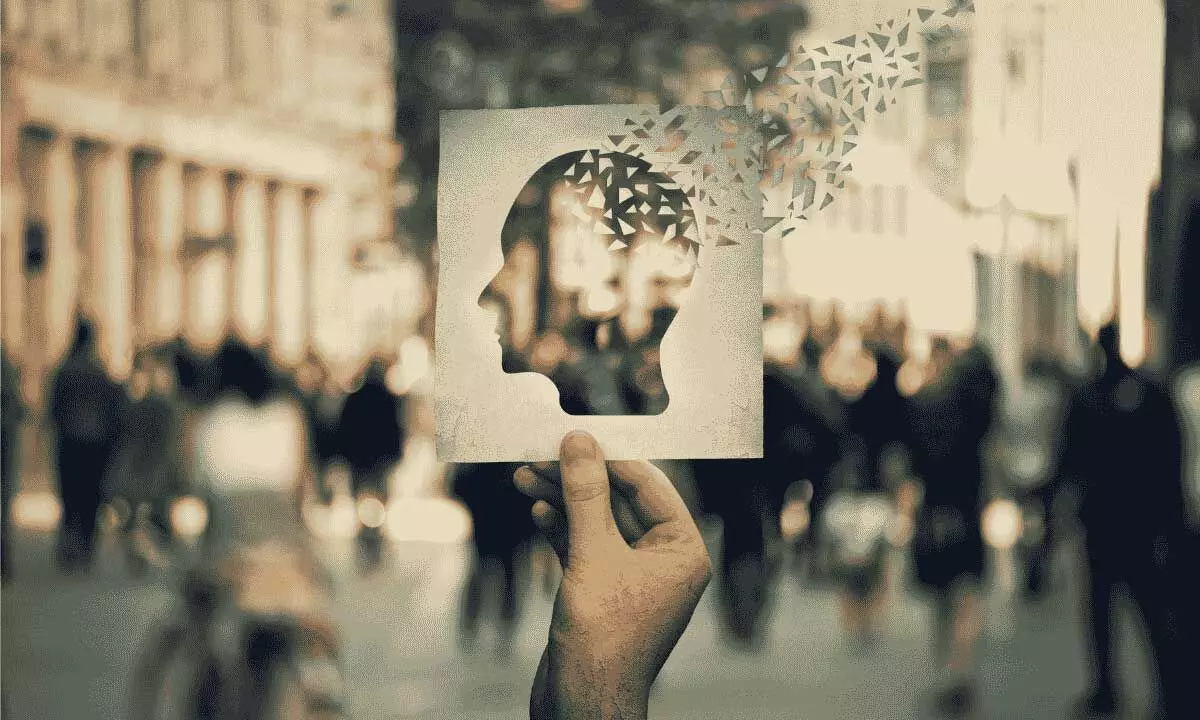Know dementia, know Alzheimer's

Representational image
Alzheimer’s disease is the commonest cause of dementia!
Alzheimer's disease (AD) is the commonest cause of dementia in the world. It is a degenerative disease of the brain, which occurs due to shrinkage of different parts of brain. Symptoms include progressive loss of memory and other cognitive functions. It is more common in older people; however, it can occur in young too. The number of people living with AD doubles every 5 years beyond the age of 65. Even though AD is more common in older people, one should note that normal ageing does not cause memory loss. In addition to advancing age, hereditary factors also play a role. Familial AD accounts for <1% of all cases of AD. The proportion of familial AD is higher in early onset (<60 years of age) AD.
Memory loss is the commonest symptom. People with AD may forget names of familiar people. They may forget where they have kept the things of daily use. Memory loss is more for recent events, and remote memory may remain intact until late stages of the disease. Those affected with AD lose the sense of direction and may not be able to reach known places. They can have difficulty in calculation, resulting in inability to do financial transactions. Self-care is affected and they may need assistance for activities of daily living such as bathing, dressing, feeding and toileting needs. Some patients with AD can also have psychological symptoms such as depression, anxiety, confusion, irritability and sleep disturbances. The disease can deteriorate over time. In mild cases, people have only mild forgetfulness and may be able to carry out all activities by themselves. However, in severe cases of AD, people get bed-bound and depend on caregivers for even their basic daily needs.
AD is the commonest cause of dementia and there is no cure. However, there are several other causes of dementia, which can get cured with prompt initiation of treatment. These include vitamin B 12 deficiency, thyroid diseases, alcohol abuse, brain infections, brain tumours and head injury to name a few. Brain scan should be done in all cases suspected to have dementia. It can detect strokes, bleeding and tumours in brain. In cases suspected to have brain infection, lumbar puncture (spinal tap) is useful. Blood test for vitamin B12 and D deficiency, thyroid disease and sugar should be done. Repeated episodes of low sugar (hypoglycaemia) can also cause dementia.
There is no cure for AD. Medicines are given to slow the progression of disease, and cause mild improvement in cognitive functions. In dementia caused by other diseases, the underlying cause can be treated and results are very pleasing.
Tips to prevent dementia and cognitive decline
• Avoid stress
• Sleep adequately (7-9 hours per night)
• Engage in regular physical activity such as running, brisk walking, cycling or swimming (150 minutes or more per week)
• Engage in brain exercises, such as solving crossword puzzles, Sudoku or learning a new skill
• Eat healthy foods such as fruits, vegetables, whole cereals, blueberries, fish and dry fruits. Avoid fatty and ultra-processed packaged foods.
• Keep BP, sugar and cholesterol within normal limits
• Maintain normal body weight. Avoid overweight and obesity
• Wear helmets and seatbelts while driving- to prevent head injury
• Avoid smoking and alcohol abuse
• Consult a Neurologist if you develop memory loss.










